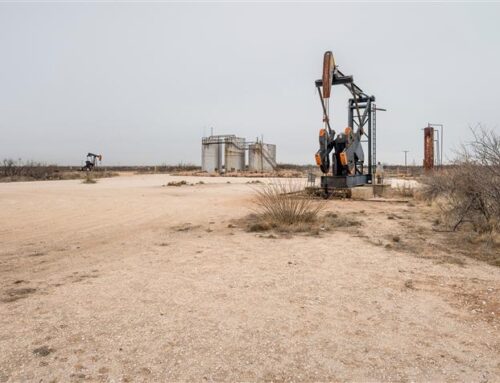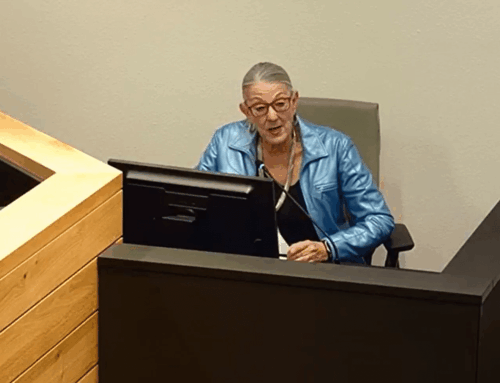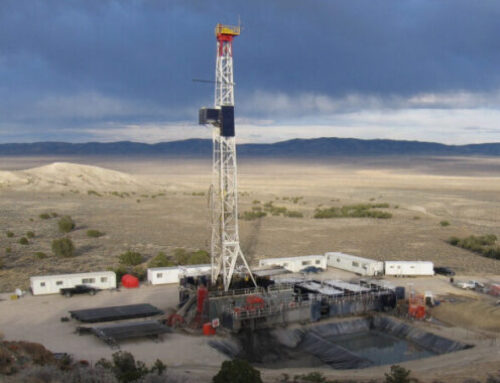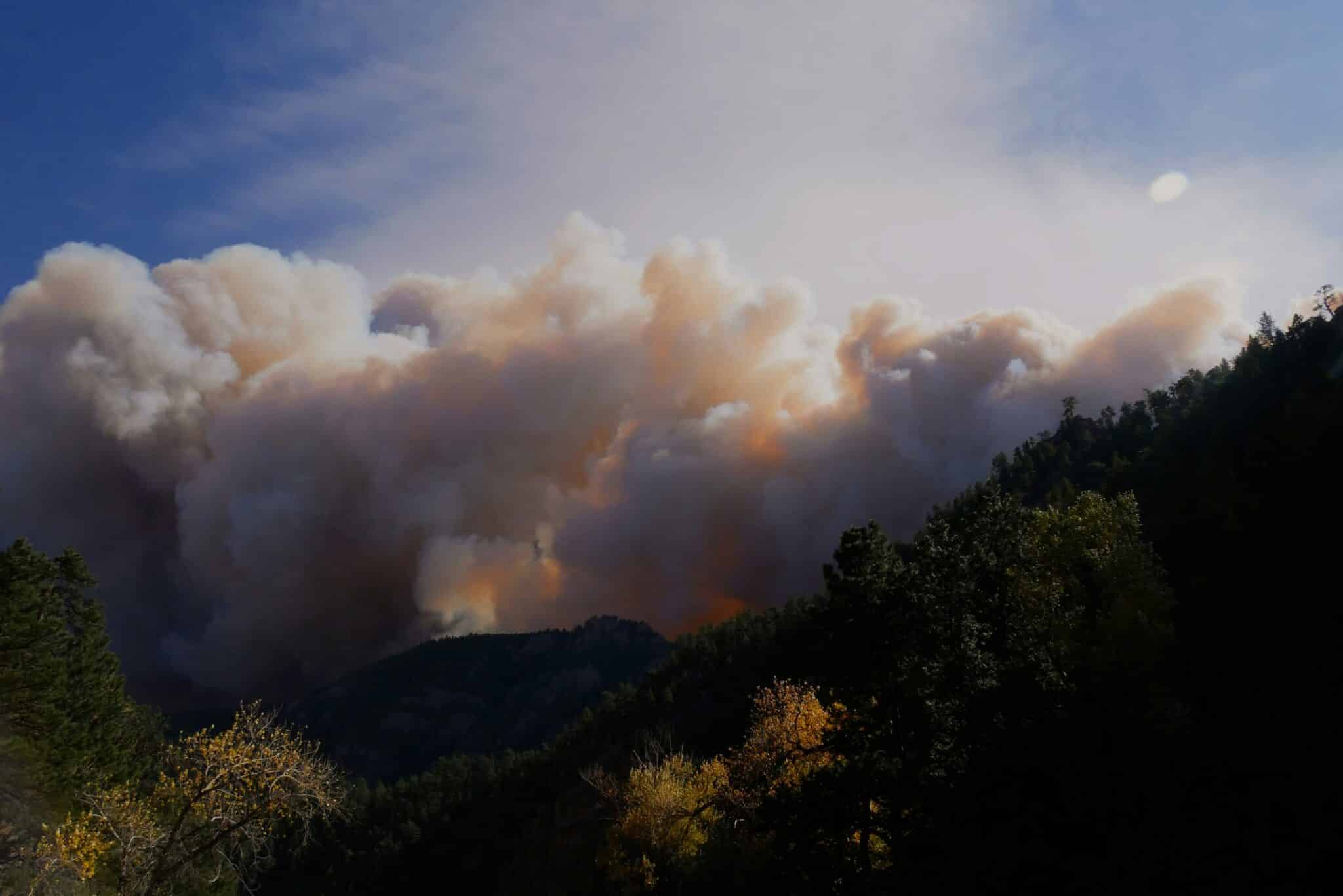Senate Committee Passes Fix Our Forests Act
On October 21, the Senate Committee on Agriculture, Nutrition, and Forestry passed the Fix Our Forests Act (FOFA, S. 1462) on an 18-5 bipartisan vote. The committee also marked up and unanimously passed the United States Grain Standards Reauthorization Act and a package of 13 lands bills.
The Fix Our Forests Act proposes significant changes to federal wildfire management. Notable provisions include the designation of high-risk firesheds and special authorities to treat them, creation of a Wildfire Intelligence Center, new and expanded programs for mitigation and post-wildfire restoration, litigation and judicial injunction reforms, and stronger reporting requirements for federally funded activities.
During markup, the committee unanimously adopted a manager's package of 16 amendments from both Republicans and Democrats and rejected three Democratic amendments. The bill now heads to the full Senate for consideration. The House passed a similar measure (H.R.471) in January.
TCS supports provisions in FOFA that strengthen community hardening, expand the use of prescribed fire, improve research and information sharing, increase transparency and accountability in federal spending, and make it easier for communities—especially those at greatest risk—to access federal resources.
Community Hardening: Upfront investments in wildfire-resistant homes and neighborhoods improve resilience and protect both lives and taxpayer dollars. The new Community Wildfire Risk Reduction Program would fund landscape-scale efforts, updated building codes, and modernized detection and warning systems. Changes to the existing Community Wildfire Defense Research Program and Community Wildfire Defense Grant Program would further increase federal support for wildfire-resistant structures and defensible-spaces.
Prescribed Fire: Decades of total suppression have left forests overgrown and primed for megafires, with devastating fiscal and ecological consequences. Prescribed fire reduces hazardous fuels, restores ecological balance, and saves money by preventing catastrophic events. FOFA would encourage prescribed burns, require regional strategies, and strengthen partner coordination. An approved amendment from Sen. Smith (D-MN) clarifies that cultural burning is included in the bill's definition of prescribed fire.
Research and Information Sharing: Increased collaboration among federal and nonfederal partners is essential to understanding wildfires and developing strategies to manage wildfire risk. The new Wildfire Intelligence Center—recommended by the interagency Wildland Fire Commission—would provide scientific and technical analytical services, decision support, and predictive tools. An approved amendment from Sen. Lujan (D-NM) directs the center to coordinate data collection across governmental and non-governmental research institutions. The bill also invests in new wildfire technologies for prevention, detection, communication, and mitigation through a new deployment and demonstration pilot program.
Transparency in Federal Spending: Wildfire spending remains poorly tracked across agencies. FOFA would require detailed reporting on hazardous fuels reduction and create a searchable public database of all wildfire projects. It would also direct agencies to coordinate budgets and identify gaps or overlaps. These are practical steps to ensure accountability and direct resources where they are most needed.
Coordination Among Federal Programs: The maze of federal wildfire programs often leaves communities confused. FOFA would create a single portal for wildfire-related grant applications. An approved amendment from Sen. Schiff (D-CA) expands this provision by creating a unified disaster assistance intake system that would accept applications, provide status updates, connect survivors with additional resources, and improve communication.
As lawmakers consider this bill, TCS urges them to ensure federal spending and programs remain accountable, cost-effective, and targeted to the areas of highest risk.
A complete list of approved and rejected amendments is available below.
Approved Amendments:
- Bennet #1: Creates a new pilot program to monitor wildfires by satellite.
- Bennet #2: Creates a new Emergency Forest Watershed Program, which funds projects to address runoff, soil erosion, and flooding caused by a natural disaster on National Forest System land.
- Booker #1: Adds more flexibility in the federal grazing program to respond to temporary circumstances that impact resource conditions, such as the effects of wildfire.
- Fischer #1:
-
- Increases payouts under the Emergency Conservation Program to agricultural producers who replace or repair equipment as part of efforts to rehabilitate land after wildfires and other natural disasters.
-
- Expands the Emergency Forest Restoration Program, which reimburses nonindustrial private forest landowners who take emergency measures to restore land after a natural disaster, to include all wildfires caused by the federal government and allow advanced payments.
- Klobuchar #1: A new study on joint efforts to Canada to reduce international wildfire smoke.
- Klobuchar #2: Extends the Collaborative Forest Landscape Restoration Program to 2034 and requires projects to follow standardized monitoring questions.
- Lujan #1:
-
- Establishes regional wildland fire research centers at colleges/universities.
-
- Requires the new Wildfire Intelligence Center to coordinate data collection efforts across governmental and non-governmental research institutions.
- Lujan #2:
-
- Allows USFS to enter contracts, grants, or other agreements to collect native plant materials under the IIJA ecosystem restoration funding.
-
- Uses leftover funds from the Hermit's Peak/Calf Canyon Fire Account to build a center in New Mexico for native seedling R&D.
- Lujan #3: Requires the USFS to prioritize local contractors for hazardous fuels reduction and firesheds management projects.
- Lujan #5: Minor amendments to the Public-Private Wildfire Technology Deployment and Demonstration Partnership.
- Schiff #1 (as modified): Establishes a unified intake process and system for federal disaster assistance. The system will accept applications, give status updates, provide disaster survivors with information on other resources, and support improved communication.
- Schiff #2: A new study on the impacts of fireshed management projects.
- McConnell #1: Partnerships with colleges/universities to study white oaks.
- Smith #1:
-
- Adds tribal representation to the Wildfire Intelligence Center board
-
- Includes cultural burning in the definition of prescribed fires
- Thune #1: Expands the map of the firesheds management areas for firesheds with White Spruce trees.
- Warnock #1: Adds State forestry agency representation to the Wildfire Intelligence Center board.
Rejected Amendments:
- Bennet #6: Required public, local government, and tribal collaboration in developing fireshed management projects
- Schiff #3:
-
- Appropriated $3.6 billion annually for the Wildland Fire Intelligence Center and fireshed management activities, as well as an additional $100 million for associated environmental reviews.
-
- Authorized an additional $20 million and appropriated an additional $10 million annually for the Water Source Protection Program
-
- Authorized an additional $30 million annually and appropriated $10 million for the Watershed Condition Framework
-
- Appropriated $100 million annually for the Community Wildfire Risk Reduction Program
-
- Authorize an additional $25 million for reforestation, nurseries, and genetic resources program and $5 million annually from the Reforestation Trust Fund
- Booker #2: Repealed a provision of the Fix Our Forest Act that limits preliminary injunction and claims seeking judicial review.
- Photo by Malachi Brooks on Unsplash










